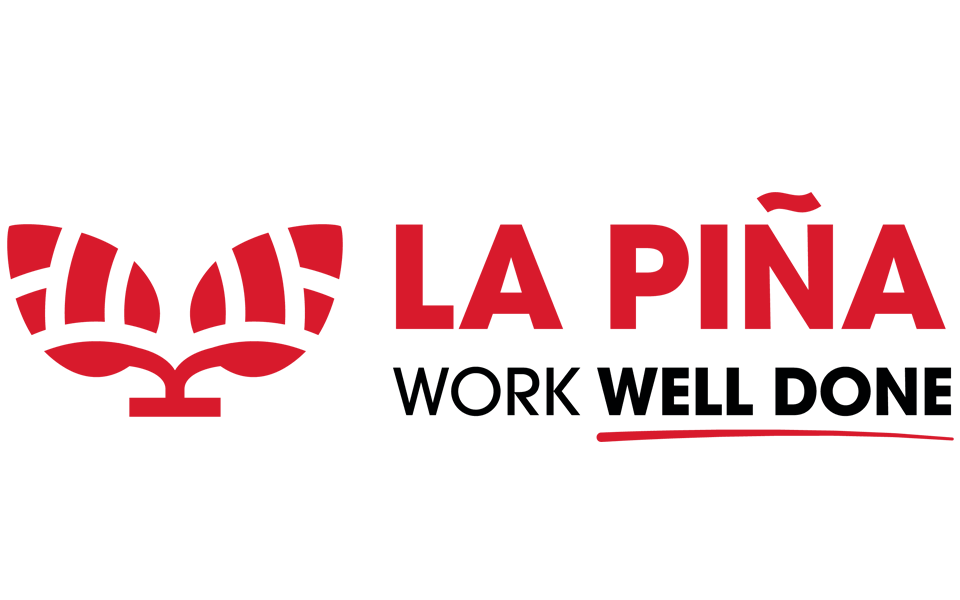How International Licensing Impacts Your Gaming Experience
Blog

How International Licensing Impacts Your Gaming Experience
When evaluating online casinos, most players naturally gravitate toward examining game libraries, promotional offerings, and payment processing options. However, one fundamental aspect that significantly influences every facet of the gaming experience often receives insufficient attention: the casino's licensing jurisdiction and regulatory framework. International licensing determines not only where a casino can legally operate but fundamentally shapes player experiences across security protocols, fairness standards, withdrawal procedures, and responsible gambling implementations. For an in-depth guide to trusted platforms and their licensing details, https://casinositesnotongamstop.co.uk/ offers expert reviews and insights. The licensing authority under which an online casino operates establishes the regulatory environment that governs every aspect of platform operations, from technical infrastructure requirements to customer service standards. These jurisdictional frameworks create the foundation upon which casinos build their services, influencing everything from game selection and bonus structures to dispute resolution procedures and player protection mechanisms. Understanding how different international licenses affect gaming experiences empowers players to make informed platform selection decisions based on their priorities, preferences, and risk tolerance levels. The variance between regulatory approaches can mean the difference between seamless gaming experiences with robust player protections and potential frustrations with limited recourse for issues. This examination explores the intricate relationship between licensing jurisdictions and player experiences, analyzing how regulatory frameworks shape casino operations and influence the quality, safety, and satisfaction levels that players can expect from their chosen gaming platforms. International licensing in online gaming encompasses the authorization systems established by various governmental and regulatory bodies worldwide, each implementing distinct standards for operator compliance, player protection, and market oversight. These licensing frameworks create diverse regulatory environments that significantly impact how casinos operate and serve their player communities. The Malta Gaming Authority (MGA) stands as one of Europe's most respected licensing jurisdictions, known for implementing balanced regulatory approaches that protect player interests while allowing operators sufficient flexibility to innovate and compete effectively. MGA-licensed casinos must meet stringent requirements for financial security, technical infrastructure, and responsible gambling implementation, creating reliable gaming environments for international players. The UK Gambling Commission (UKGC) maintains arguably the world's most restrictive regulatory framework, implementing comprehensive player protection measures, strict promotional limitations, and mandatory participation in national self-exclusion programs. While this creates highly secure gaming environments, it also limits operator flexibility in bonus offerings and promotional creativity. Curaçao eGaming operates under a more business-friendly regulatory approach, offering streamlined licensing processes with reduced operational restrictions that enable casinos to serve global markets more flexibly. This jurisdiction attracts operators seeking to offer diverse payment methods, generous promotional structures, and broader game selections without extensive regulatory constraints. Gibraltar Regulatory Authority provides EU-focused licensing that combines strong player protections with reasonable operational flexibility, making it attractive to operators targeting European markets while maintaining high service standards. The jurisdiction requires comprehensive compliance measures while allowing innovative gaming features and competitive promotional structures. Kahnawake Gaming Commission offers North American-focused licensing with affordable compliance costs and streamlined regulatory requirements that appeal to smaller operators and innovative platforms. While providing basic player protections, the jurisdiction emphasizes market accessibility and operational efficiency. The Estonian Tax and Customs Board, Swedish Gambling Authority, and Danish Gambling Authority represent newer regulatory frameworks implementing localized approaches that balance player protection with market competitiveness. These jurisdictions often require local market focus while maintaining international operational capabilities. Understanding these regulatory differences helps players recognize what standards and protections they can expect from casinos operating under different licensing frameworks, enabling more informed platform selection decisions based on individual priorities and preferences. Licensing authorities implement varying requirements for game fairness verification and security infrastructure that directly impact player experiences and confidence levels. These standards determine the quality of random number generation, data protection measures, and audit procedures that ensure transparent and secure gaming environments. Random Number Generator (RNG) testing requirements differ significantly across licensing jurisdictions, with premium authorities mandating regular independent verification by recognized testing laboratories such as eCOGRA, iTech Labs, or Gaming Laboratories International (GLI). These testing protocols ensure that game outcomes remain truly random and cannot be manipulated by operators or external parties. MGA and UKGC licensing requires comprehensive RNG certification before game approval and ongoing monitoring to maintain compliance with fairness standards. These jurisdictions mandate detailed audit reports, statistical analysis of game performance, and regular re-certification to ensure continued compliance with randomness requirements. Curaçao eGaming implements basic RNG testing requirements that provide fundamental fairness assurance while allowing operators more flexibility in game selection and approval processes. This approach enables faster game deployment and broader software provider integration while maintaining essential fairness standards. Encryption and data protection standards vary considerably between jurisdictions, with stricter authorities requiring military-grade SSL encryption, secure data storage protocols, and comprehensive privacy protection measures. GDPR compliance has become mandatory for EU-licensed operators, ensuring robust personal data protection and user control over information usage. Security Requirements by Jurisdiction: Audit and monitoring procedures establish ongoing oversight mechanisms that verify continued compliance with licensing standards throughout casino operations. Premium jurisdictions require quarterly or annual comprehensive audits covering financial management, game fairness, customer service quality, and responsible gambling implementation. Fraud prevention measures mandated by licensing authorities include anti-money laundering (AML) procedures, know-your-customer (KYC) verification protocols, and suspicious activity monitoring systems. These requirements protect both players and operators from fraudulent activities while ensuring compliance with international financial regulations. Technical infrastructure standards determine the reliability and performance levels that licensed casinos must maintain, including server uptime requirements, backup systems, and technical support capabilities. These standards directly impact gaming experience quality through reduced downtime and improved platform stability. Casino licensing significantly influences promotional structures, payout procedures, and player rights protections, creating substantial variations in the gaming experiences available across different regulatory environments. Understanding these differences helps players select platforms that align with their preferences for bonus generosity, withdrawal efficiency, and dispute resolution capabilities. Bonus structure regulations vary dramatically between jurisdictions, with restrictive authorities implementing caps on welcome bonuses, wagering requirements limitations, and promotional term standardization. The UKGC's strict bonus regulations limit free spin values to 10 pence, cap wagering requirements at 35x, and require clear promotional term disclosure to prevent player confusion. Conversely, flexible licensing jurisdictions like Curaçao allow operators to offer more generous promotional packages with higher bonus percentages, valuable free spins, and creative promotional structures that provide enhanced player value. These differences can significantly impact the entertainment value and potential returns that players receive from their gaming activities. Withdrawal processing requirements establish minimum standards for payout efficiency and transparency that directly affect player satisfaction levels. Premium licensing authorities typically mandate maximum withdrawal processing times, require transparent fee structures, and establish minimum payout thresholds that protect player interests. Dispute resolution mechanisms vary significantly across licensing jurisdictions, with some authorities providing comprehensive mediation services while others offer limited intervention capabilities. UKGC-licensed operators must participate in Alternative Dispute Resolution (ADR) schemes that provide free mediation services for unresolved player complaints. Terms and conditions transparency requirements ensure that players can understand their rights and obligations when engaging with licensed casinos. Stricter jurisdictions mandate plain English terms, clear promotional conditions, and prominent disclosure of important information that affects player experiences. Player fund protection measures determine how customer deposits are safeguarded against operator insolvency or financial difficulties. Premium licensing authorities require segregated customer fund accounts, insurance coverage, or compensation schemes that protect player balances even if operators face financial problems. Complaint handling procedures establish how quickly and effectively casinos must respond to player concerns, with some jurisdictions mandating specific response times and escalation procedures. These requirements directly impact customer service quality and problem resolution efficiency. Anti-discrimination policies enforced by licensing authorities ensure fair treatment of players regardless of nationality, gender, or other personal characteristics. These protections become particularly important for international players who may face different treatment standards on various platforms. Responsible gambling tool availability and implementation requirements represent one of the most significant areas where licensing jurisdictions differ in their approach to player protection. These variations directly impact the safety mechanisms available to players and the support provided for maintaining healthy gambling habits. Mandatory self-exclusion programs vary significantly across licensing authorities, with some requiring comprehensive multi-operator exclusion systems while others allow basic platform-specific exclusion tools. UKGC licensing mandates participation in GamStop, the national self-exclusion scheme that blocks access across all licensed operators simultaneously. MGA-licensed operators must implement robust self-exclusion systems with cooling-off periods, permanent exclusion options, and integration with responsible gambling support organizations. These systems often include automatic detection of excluded players attempting to create new accounts and comprehensive exclusion verification procedures. Deposit and spending limit tools required by different licensing authorities range from basic optional features to mandatory implementation with prominent placement and easy access. Premium jurisdictions often require reality check systems that remind players about session duration and spending levels at regular intervals. Responsible Gambling Tools by License Type: Problem gambling support integration requirements determine how effectively casinos connect at-risk players with professional help and support resources. Stricter licensing authorities mandate partnerships with recognized support organizations and require staff training for identifying problematic gambling behaviors. Age verification procedures ensure that only eligible players can access gambling services, with different jurisdictions implementing varying levels of verification rigor. Some authorities require comprehensive identity verification before any gambling activity, while others allow limited access pending full verification completion. Marketing and advertising restrictions protect vulnerable populations from aggressive promotional targeting and ensure that responsible gambling messages accompany promotional materials. These requirements significantly impact how casinos can market their services and target potential customers. Player education initiatives mandated by licensing authorities include responsible gambling information provision, risk awareness materials, and clear explanation of game odds and house edges. These requirements help players make informed decisions about their gambling activities and understand the risks involved. Selecting internationally licensed casinos requires systematic evaluation of multiple factors that collectively determine the quality and safety of gaming experiences. Players should prioritize thorough research and verification procedures to ensure their chosen platforms operate under legitimate licensing with appropriate player protections. License verification procedures begin with examining casino websites for licensing information, typically displayed in footer sections with license numbers and regulatory authority names. Players should verify this information directly through regulatory authority websites to confirm license validity and current status. Regulatory authority research involves understanding the standards and protections offered by different licensing jurisdictions, enabling players to select platforms that align with their priorities for security, fairness, and player rights. This research should include examination of regulatory requirements, complaint procedures, and historical enforcement actions. Player review analysis from multiple independent sources provides valuable insights into real-world experiences with licensed casinos, highlighting both positive aspects and potential concerns that may not be apparent from official platform information. Focus should be placed on reviews discussing customer service quality, withdrawal efficiency, and dispute resolution experiences. Platform Selection Checklist: Customer support evaluation through direct testing helps assess the quality and availability of assistance when issues arise. Players should test various communication channels, evaluate response times, and assess agent knowledge levels before committing to extended platform engagement. Payment method assessment involves verifying supported deposit and withdrawal options, understanding processing times and fees, and confirming that preferred payment methods are available and reliable. This evaluation should include consideration of currency support and exchange rate policies. Responsible gambling tool evaluation determines whether platforms provide adequate safeguards for maintaining healthy gambling habits, including limit-setting options, self-exclusion features, and access to support resources. Players should prioritize platforms that offer robust protection mechanisms aligned with their personal needs. Game provider verification ensures that casino games come from reputable software developers with proper licensing and fairness certification. This verification helps confirm that games operate according to published return-to-player percentages and maintain fair random number generation. International licensing fundamentally shapes every aspect of online casino operations, creating significant variations in player experiences across security levels, fairness standards, promotional generosity, and responsible gambling support. Understanding these regulatory differences empowers players to make informed platform selection decisions that align with their priorities and preferences. The choice between platforms licensed under strict regulatory frameworks like UKGC or MGA versus more flexible jurisdictions like Curaçao involves trade-offs between enhanced security and player protection versus promotional generosity and operational flexibility. Neither approach is inherently superior, as the optimal choice depends on individual player priorities and risk tolerance levels. Future regulatory developments will likely see continued harmonization of international standards while maintaining jurisdictional distinctions that reflect different market approaches and cultural preferences. Players who stay informed about regulatory changes and maintain awareness of licensing implications will continue benefiting from improved gaming experiences and enhanced protections. The evolution of international licensing will probably incorporate emerging technologies like blockchain verification, artificial intelligence monitoring, and enhanced cross-border cooperation that further improve player protection while maintaining competitive gaming markets. Understanding these trends helps players anticipate future improvements in gaming experiences and safety standards. By prioritizing licensed platforms with appropriate regulatory oversight and maintaining awareness of how licensing affects gaming experiences, players can enjoy online casino entertainment with confidence in fairness, security, and access to effective recourse when issues arise. The investment in understanding licensing implications pays dividends through safer and more satisfying gaming experiences across the international online casino landscape.Understanding the Foundation of Online Casino Operations
The Regulatory Landscape of International Gaming Licenses
Licensing Authority
Regulatory Approach
Player Protection Level
Operational Flexibility
Malta Gaming Authority
Balanced
High
Moderate
UK Gambling Commission
Strict
Very High
Low
Curaçao eGaming
Flexible
Moderate
High
Gibraltar Regulatory Authority
EU-focused
High
Moderate
Kahnawake Gaming Commission
Business-friendly
Moderate
High
Fairness Standards and Security Protocols Across Jurisdictions
Promotional Policies and Player Rights Under Different Licenses
License Type
Maximum Withdrawal Time
Minimum Standards
Dispute Resolution
UKGC
24 hours
Very strict
ADR required
MGA
48-72 hours
Strict
Authority mediation
Curaçao
5-7 days
Moderate
Limited options
Gibraltar
48 hours
Strict
EU protections
Kahnawake
Variable
Basic
Limited recourse
Responsible Gambling Framework Implementation
Strategic Platform Selection Guidelines
Final Evaluation of Licensing Impact on Gaming




